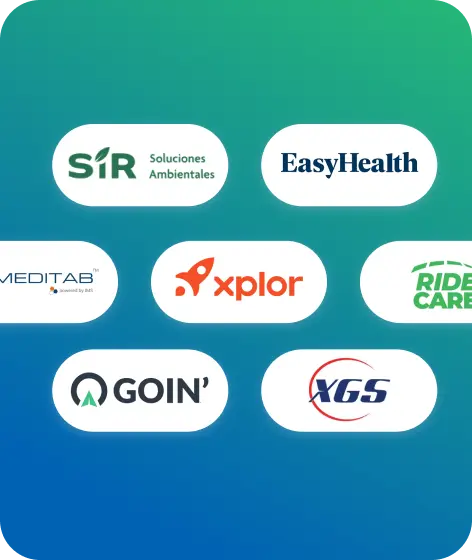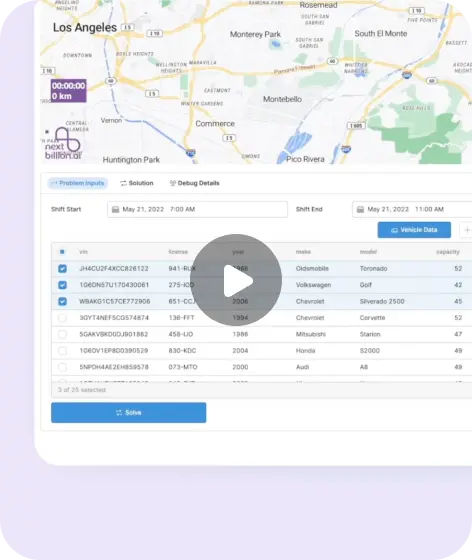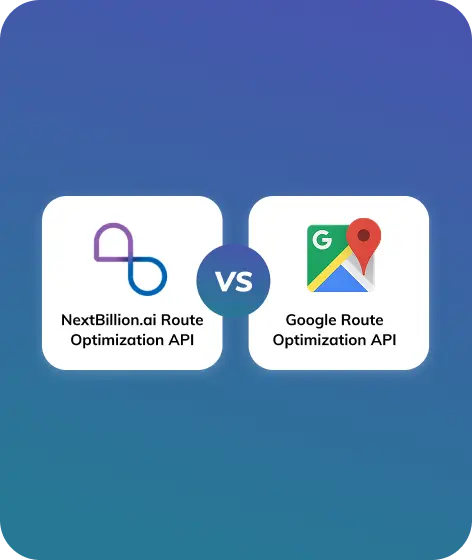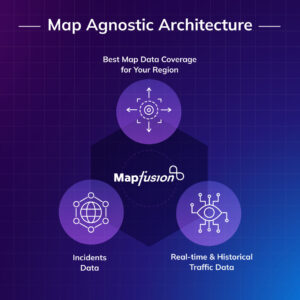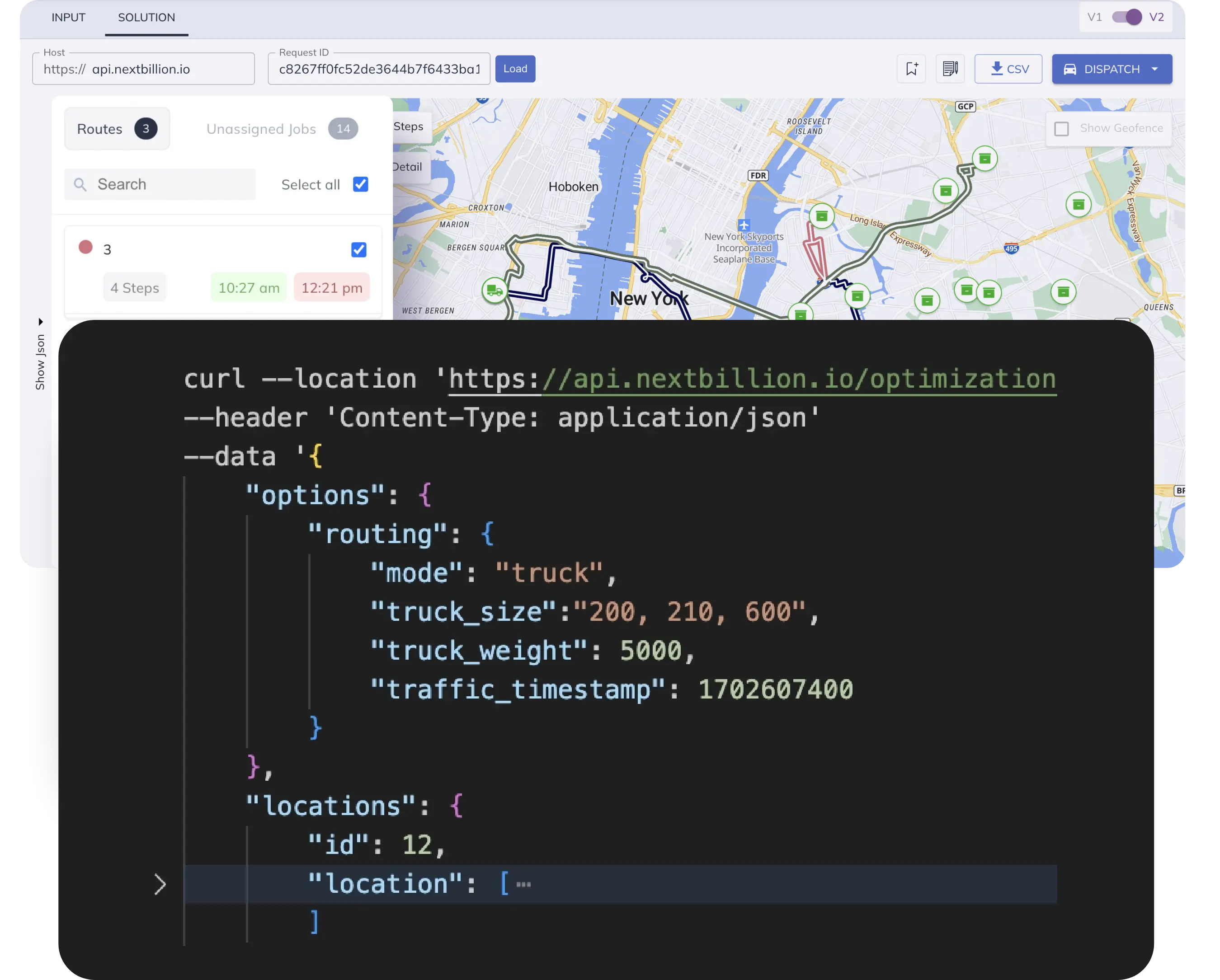Table of Contents
Logistics businesses managing diverse on-ground operations need to quickly adapt and embrace the market’s dynamic requirements. At the epicenter of every decision, data must be gathered from all available sources. Every stakeholder’s goal is to leverage data from every possible source and transform it into actionable insights with precision and accuracy.
The real challenge, however, lies in accomplishing the accuracy and precision of capturing data from all these sources without burning the pocket. Most mapping solutions limit logistical operations to open-source support or proprietary systems, leaving little room for flexibility.
This is where MapFusion comes into play. Drawing on years of experience serving logistics businesses, our team created a scalable and flexible solution that allows seamless data integration from any source while computing end-to-end routes.
What is MapFusion?
MapFusion is an advanced routing, navigation, and mapping platform designed to deliver unmatched customization and seamless integration of global map data. Built with flexibility in mind, it caters to the unique needs of businesses seeking enhanced precision and accuracy in their route planning processes. Among its many standout features, this write-up will spotlight MapFusion’s agnostic map architecture, a game-changer in the world of mapping solutions.
Common Sources for Capturing Data in Mapping Platforms
Before diving into the what and why of MapFusion’s Map-Agnostic Architecture, it’s crucial to understand the various data sources that feed into any mapping platform; these sources play a pivotal role in ensuring accurate, real-time, and comprehensive mapping solutions. Here are the most common data sources utilized in mapping platforms:
Open-Source Data
One of the most accessible sources is open-source data, which comes from platforms like OpenStreetMap (OSM). Logistic businesses opt to capture data from open-source data as it offers a collaborative database of geographic information that is contributed to and updated by a global community.
Proprietary Data Providers
There are many proprietary data providers, such as TomTom, Google Maps, HERE, or, that offer comprehensive, high-quality mapping data tailored for commercial use. These providers deliver accurate and up-to-date information, including detailed street views, real-time traffic updates, and advanced geocoding. Logistic operations where real-time data calculations are required to meet the dynamic changes often opt for any proprietary data providers to scale their growing operations.
While both sources are equally important and are limited by a few restrictions, businesses often struggle to choose one over the other. Here’s a detailed comparative analysis of how both platforms are similar and different.
Tabular Comparison of Open-Source Data & Proprietary Data Providers
| Features | Open- Source Data | Proprietary Data Providers |
| Cost | Typically free or low-cost | Subscription-based or pay-per-use; can be expensive |
| Flexibility | High; allows for extensive customization and modification | Limited; customization often restricted by provider contracts |
| Data Accuracy | Varies based on community contributions | Generally high; maintained by dedicated professional teams |
| Coverage | Strong in urban and well-mapped areas; inconsistent elsewhere | Comprehensive, with consistent global coverage |
| Real-Time Updates | Limited, dependent on community updates | Robust real-time traffic, incident, and weather updates |
| Data Ownership | Full ownership and control over data | Data controlled by the provider; limited usage rights |
| Integration | Requires technical expertise for integration | Easier integration with enterprise systems; APIs and SDKs provided |
| Innovation | Encourages innovation through community collaboration | Innovation driven by provider’s R&D teams |
Introducing Map Agnostic Architecture
MapFusion’s architecture is designed to be map provider agnostic, removing dependency on any provider whose coverage may be limited in certain regions. This adaptable framework seamlessly supports open-source and proprietary map data sources, allowing logistical businesses to select the most suitable options based on their geographic and dynamic operational needs.
By integrating diverse data streams—such as real-time traffic conditions, historical traffic patterns, and incident reports—MapFusion delivers accurate and up-to-date mapping insights for informed decision-making.
Unlocking Value for Logistics Businesses with MapFusion
No single map provider offers comprehensive coverage for every region, making it essential to use multiple providers based on geographic needs. For instance, one provider might lack coverage in Southeast Asia or the Caribbean, but with MapFusion, businesses can easily switch to a more suitable provider for those regions. This level of flexibility is something that providers like TomTom can’t offer.
This can be an add-on value for logistical providers who are always looking for better options to enhance and scale their existing operations.
Here’s the listed benefits that businesses opting for agnostic map architecture feature can leverage:
Get the Best of Every Map Data Source
Logistic business providers can leverage multiple map providers to ensure businesses have access to the most accurate and comprehensive data for each region. This flexibility allows for optimized routing, cost savings, and better operational efficiency.
Cost-Effective Solution
MapFusion offers a cost-effective solution by allowing businesses to choose the most suitable map providers for specific regions, avoiding expensive, all-in-one provider contracts. This flexibility ensures businesses only pay for the data they need, optimizing both operational costs and budget allocation without compromising coverage or accuracy.
Seamlessly Blend Real-Time and Historical Traffic Insights
MapFusion taps into the best traffic data sources—real-time and historical—from TomTom and INRIX, updated every 5 minutes. This ensures accurate, up-to-date traffic insights for optimized routing.
Experience Quick Customization and End-to-End Edit Support
MapFusion supports quick, real-time customization, allowing businesses to make on-the-fly edits to maps and routing preferences. This ensures that users can tailor their mapping solutions to evolving operational needs without delays.
Final Thoughts
MapFusion empowers businesses with the flexibility to customize and integrate mapping data seamlessly, enabling more efficient and cost-effective operations. With its map-agnostic architecture, real-time updates, and powerful customization features, MapFusion ensures businesses stay agile and ahead of the competition in an ever-evolving logistics landscape.
If you are looking for customized mapping solutions to meet your growing business needs, feel free to contact our team of experts at MapFusion.
Learn more about MapFusion Platform:
- Leading the Way: Redefining the Future of Mapping with MapFusion
- Personalized Maps: Tailor Your Maps with Ease with MapFusion
- Private Routing Preferences: Define your Routing Constraints with MapFusion
Ready to get started?
Request a DemoTable of Contents

